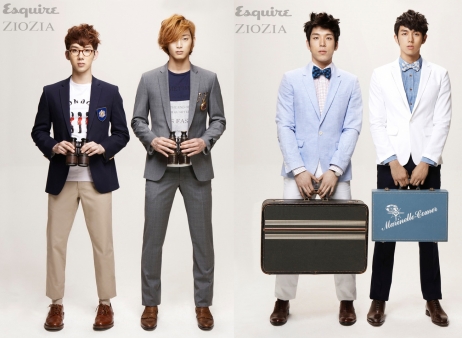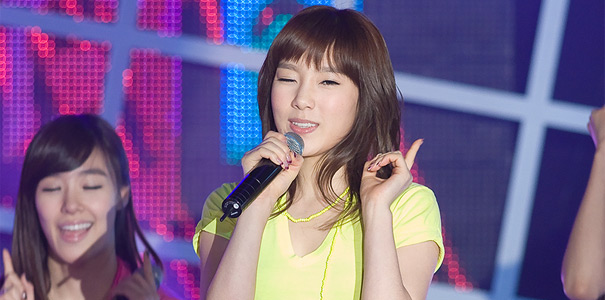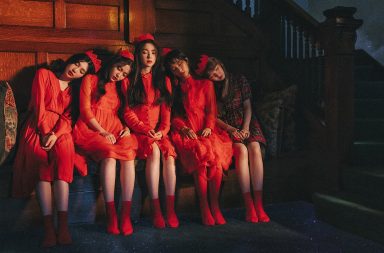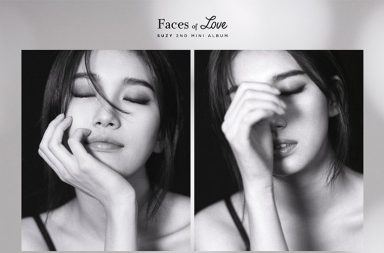 Last week, my colleague Jean argued that MR removed is not the best way to judge a talent, and that doing so takes away from the fun that is pop. I definitely agree that more than half the fun in mainstream pop is to take it for its face value, because sometimes, things just aren’t that deep.
Last week, my colleague Jean argued that MR removed is not the best way to judge a talent, and that doing so takes away from the fun that is pop. I definitely agree that more than half the fun in mainstream pop is to take it for its face value, because sometimes, things just aren’t that deep.
But because Kpop is a genre that introduced me to my best friend MR Removed, I have a little weensy bit of a soft spot for it. MR Removed let me spot the talented, know why the Kpop idol system is a failure, and how this failure perpetuates the popularity of the talentless.
Everyone knows by now the sort of stories that go behind all the little idolings who finally debut and strut their stuff on the big stage. These stories are usually told with tears in the eyes, tissue and consoling groupmates in hand, and they oft go like this:
1. I was discovered on the street/I auditioned until my toes turned blue/I tried out to be a model but trained to be an idol instead.
2. I trained really, really hard.
3. I debuted.
Sound familiar?
 Here’s the thing: I don’t doubt for a second that every single idol who debuts has put in a lot of work for their debut. That’s why the official Kpop debut is such a momentous occasion — just making to your debut is half the battle already. And for the small minority who didn’t train that long before their debut, well, their asses are handed back to them in full after they debut when they sleep an average of 2.14 hours a night for the next ten years of their lives.
Here’s the thing: I don’t doubt for a second that every single idol who debuts has put in a lot of work for their debut. That’s why the official Kpop debut is such a momentous occasion — just making to your debut is half the battle already. And for the small minority who didn’t train that long before their debut, well, their asses are handed back to them in full after they debut when they sleep an average of 2.14 hours a night for the next ten years of their lives.
But I’m going to play the Tiger Mom Hardass Asian on the issue here: just because you worked really hard doesn’t mean you’re really good, nor am I going to give you a pass for it if you suck.
Yes, pop music is about the music videos, the live stages, the costumes, the catchy lyrics. Yes, you will be nervous on stage in uncomfortable clothes in front of possibly hostile fans who don’t give a shit. But that doesn’t excuse the very dire fact that you should actually be able to sing when your official career, your money-maker of a job requires you to sing.
Kpop fans acknowledge that the last five, nay, 2 years of Kpop has morphed into something slightly gimmicky. There are more girl and boy group debuts in a year than there was in the entire 90s decade worth of Kpop. If we strip down all the concepts, images, variety personalities, what’s left is the ability to sing. Why shouldn’t idols be required to sing well? Just because you worked hard for your debut doesn’t excuse you from not being able to do something that’s required of you.
This is the genius of the Korean idol system, and the reason why this genius is actually a huge failure in the making.
Those who are weak singers, who can’t ever improve, or who straight up don’t know how to sing are made into something beyond their lack of talent. Time and time again, idol execs hold firm to their beliefs that if they put enough money and effort into molding and creating the things an idol needs — image, concept, clothes, plastic surgery — that tricky little thing known as singing talent need not be a priority. This is what happens when you house, feed, train more idol-wannabes than you possibly know what to do with, so you have to push product fast. You debut them, you make them go on variety shows, film commercials, perform on shows, and hopefully, you make bank.
When there’s so much clutter in the Kpoposphere, the only real way to judge a group or a singer for their skill is to know how they sound without the miracles of backtracking and autotuning. This is barely a ridiculous request. Anti’s do notoriously use MR removed videos to strike down the idols they hate, but that’s barely enough to discredit the entire notion of MR removed.
Now, I know that there are many things that go into live performances, all of which can affect how you end up singing. But here’s the thing: people will know if you can sing. Kpop fans who have watched enough good and bad episodes of Inkigayo, Music Core, M! Countdown, Music Bank will and do know a good singer when they hear one. We will know if you’re slightly breathless and can’t hold a note because your shoes are so tight and painfully arched that it takes you two minds to concentrate on dancing, let alone singing and dancing and winking and aegyo-ing. Unfortunately, that also means we will know if you’re off key because you just can’t freaking sing.
And if it’s a situation where you seem to always be having an off day because you’re always off-key and you never improve, then it’s unfortunate you’re a singer at all and it’s unfortunate that companies are perpetuating lack of talent by letting you debut as a singer. There are many, many talented folks out there who don’t have contracts with record labels for whatever reason, so it’s completely inexplicable that companies try to debut talentless acts.
It’s a vicious cycle. Companies try so inorganically to force talent into a trainee. If he/she ends up doing really well after the training, great. But the reality is that he/she may never be good, a point at which the company has already invested so much into the trainee that there’s nothing they can do but to debut the trainee and try to earn money back that way to re-coop losses. That’s an awful thing for the system and nobody ends up winning. Nobody’s thinking of the big picture, because it is the same people who have to suffer when five years down the line when they are faced with a market so over-saturated that they no longer have the space to put their products.
When the market is already this flawed, there’s nothing to do but rely on things like MR removed to diffuse through the glitter and smoke. It’s not natural to have to go through the lengths necessary just to determine if a performer can sing, but an unnatural market breeds unnatural means of navigating it.



